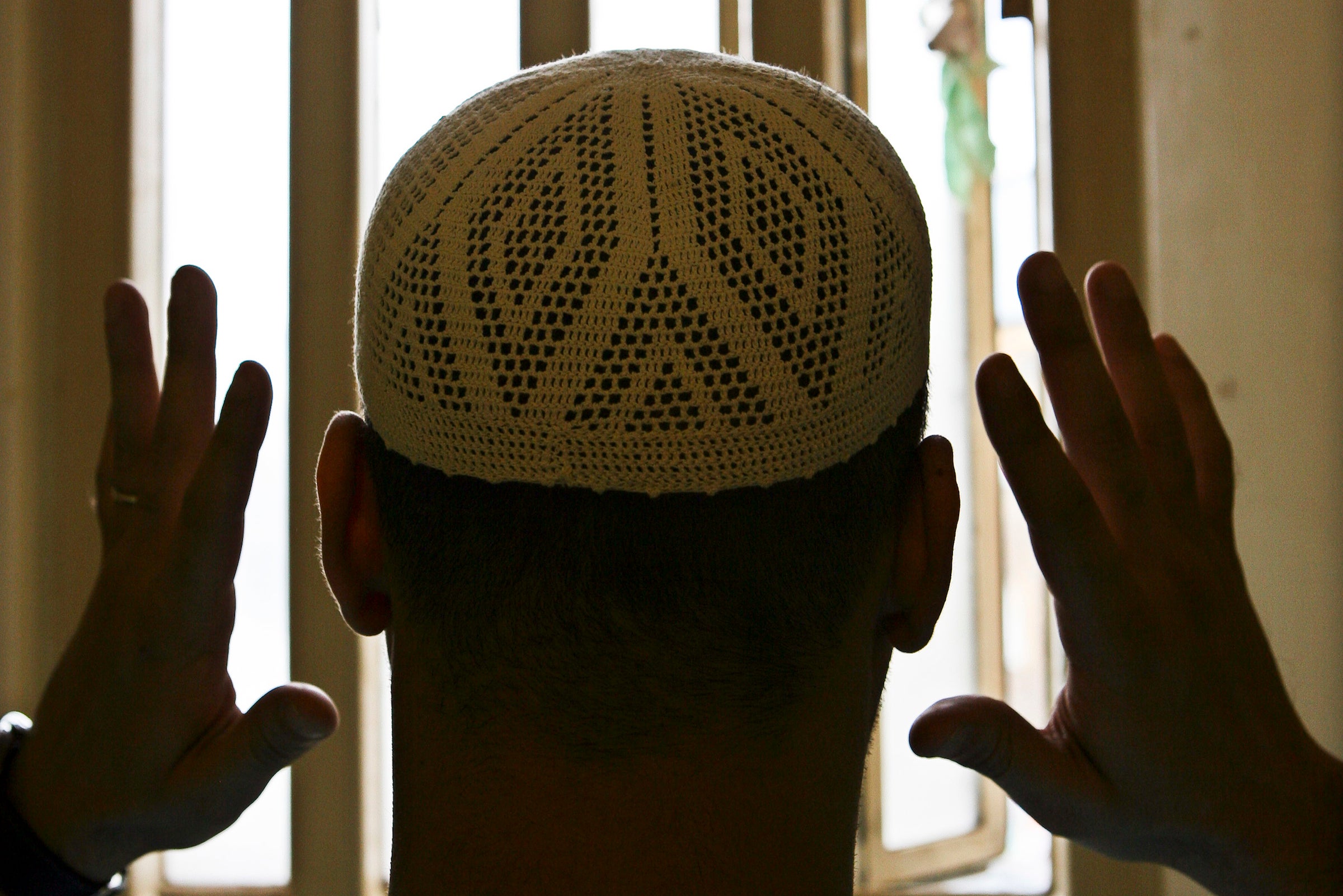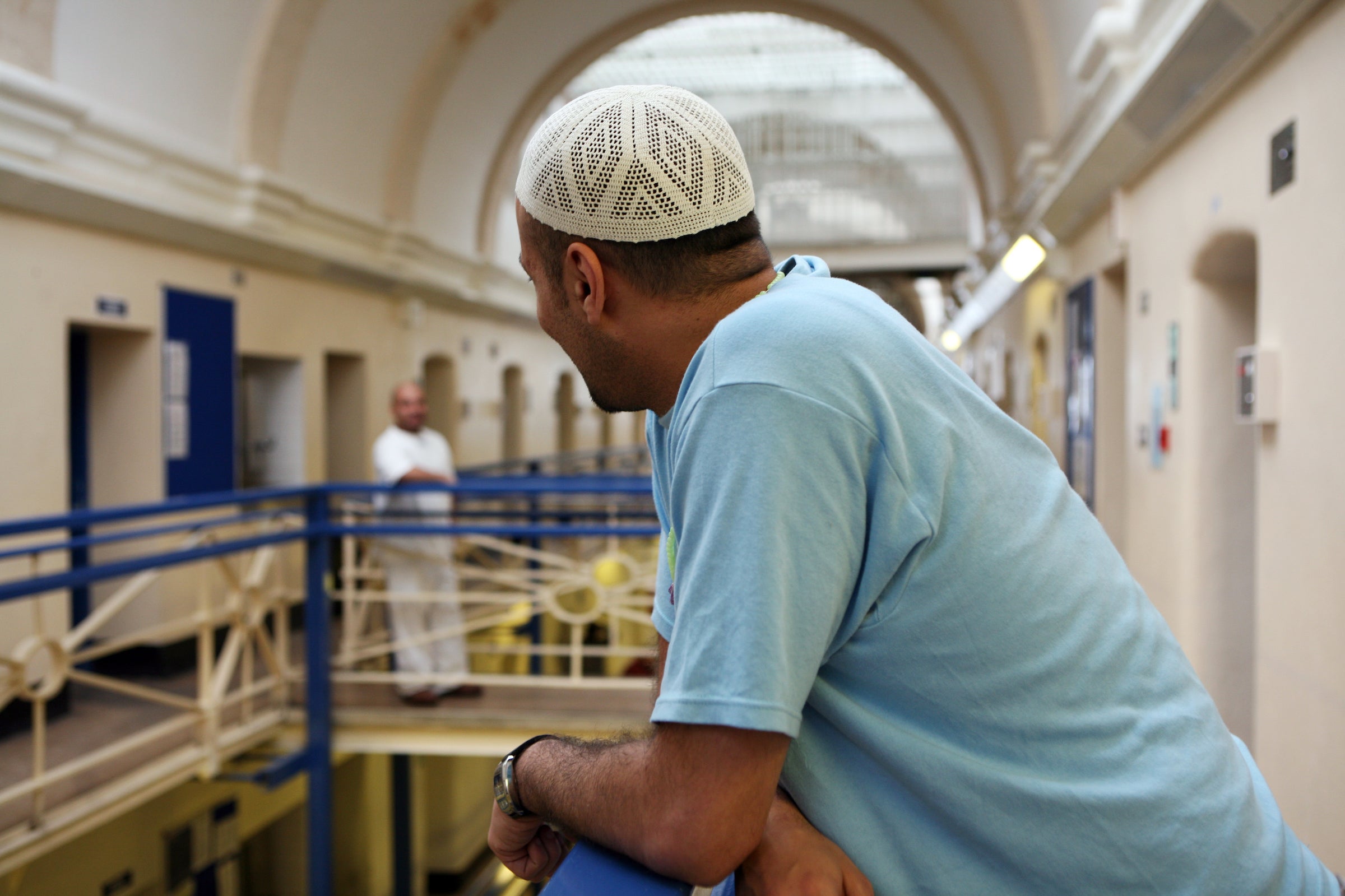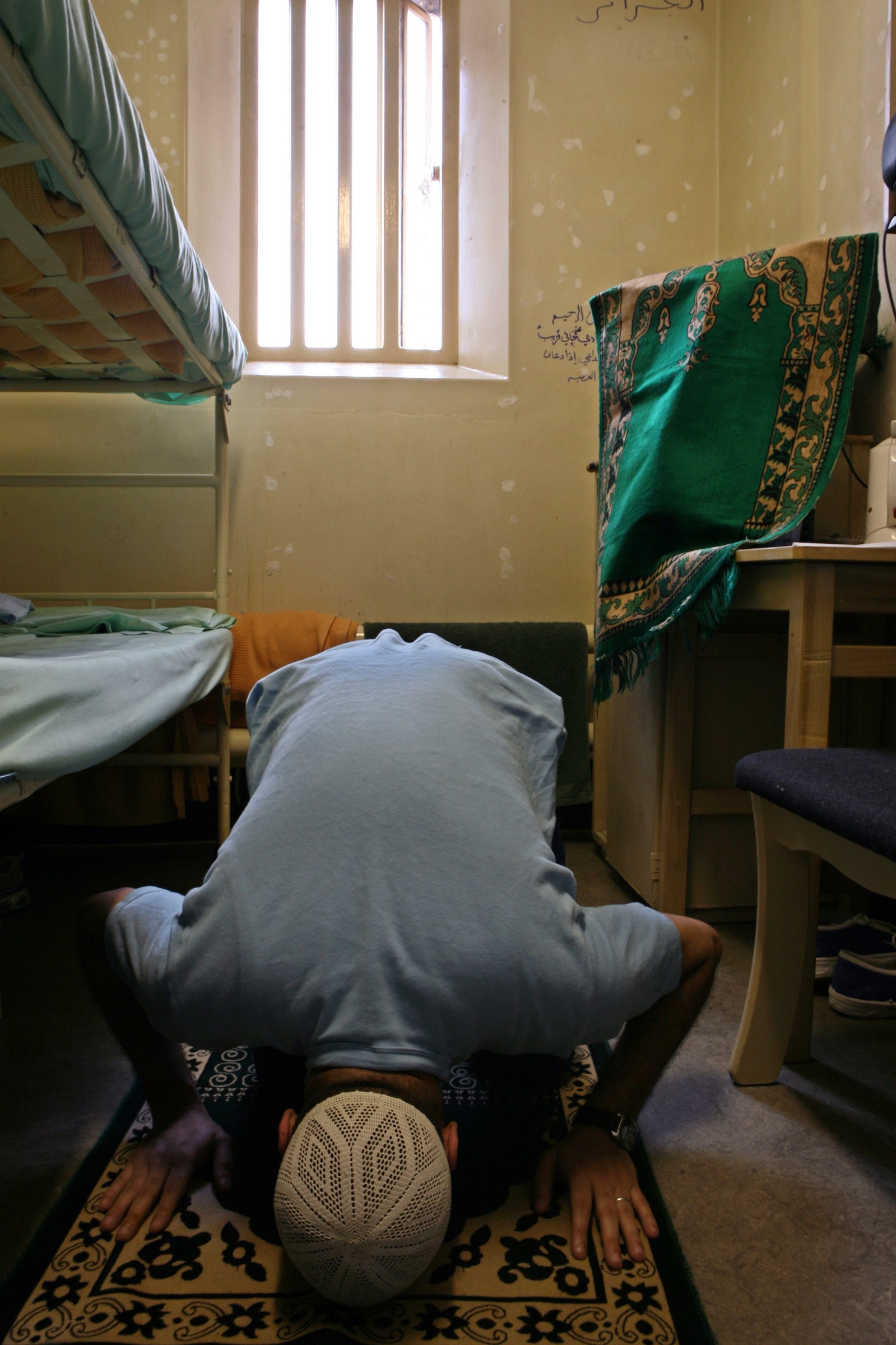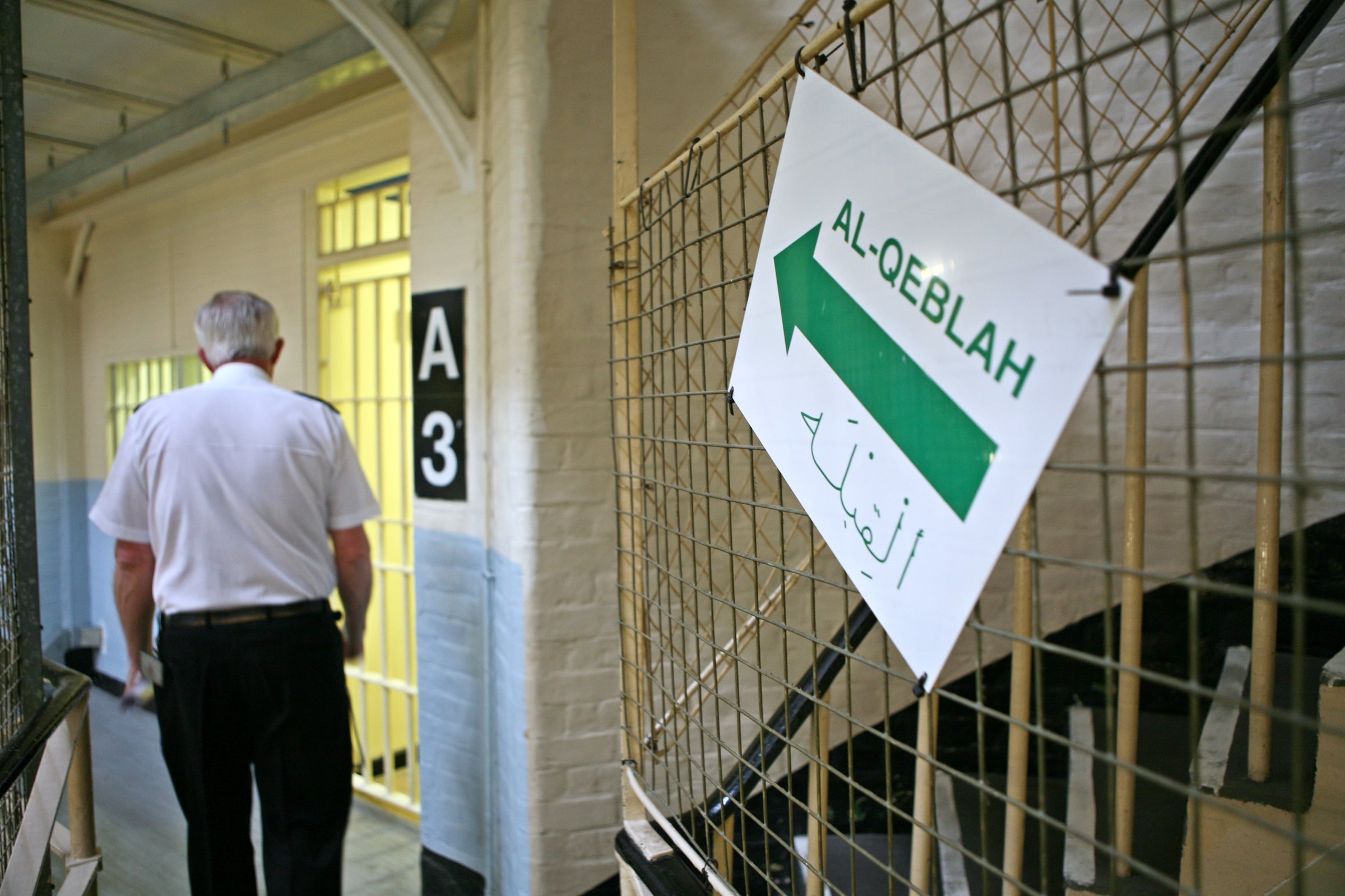Muslims and prison: When crime collides with faith and morality
How do Muslims ‘get on’ after prison? There is a grittiness to moral life seen in youth and crime. No one interviewed by Ryan Williams justified their crimes, but they did locate poor decisions within wider efforts to lead a good life

Your support helps us to tell the story
From reproductive rights to climate change to Big Tech, The Independent is on the ground when the story is developing. Whether it's investigating the financials of Elon Musk's pro-Trump PAC or producing our latest documentary, 'The A Word', which shines a light on the American women fighting for reproductive rights, we know how important it is to parse out the facts from the messaging.
At such a critical moment in US history, we need reporters on the ground. Your donation allows us to keep sending journalists to speak to both sides of the story.
The Independent is trusted by Americans across the entire political spectrum. And unlike many other quality news outlets, we choose not to lock Americans out of our reporting and analysis with paywalls. We believe quality journalism should be available to everyone, paid for by those who can afford it.
Your support makes all the difference.“The kitchen knife was so big it was poking out of my [Nike] Just Do It bag.” At age 12, Amadi was spotted by police, stopped and searched, and pulled into a police van. “I don’t know what I was thinking. Walking around Central London with it… I had mates saying, ‘Throw it in the bin!’ Why I didn’t throw it in the bin, God knows.”
Amadi made a bad choice. It’s easy to see that. He was, in his own words, “just young, dumb and stupid”. We were all young, dumb and stupid once, but really, who carries around a kitchen knife?
“You will get five years for a knife”, Amadi was told, surrounded by 10 officers in the police van on New Year’s Eve. “They were terrorising me. ‘You’re going to jail. Then you’re getting deported’.” His parents had emigrated from Africa to seek refuge, but he was born in London: a British national. “To where? Charing Cross?” he retorted pluckily, “That was a bad idea, I shouldn’t have said that… that’s what got them pissed off.”
It was his first arrest. Amadi was part of my study on Muslims in the Criminal Justice System. The study developed after I spent over 100 days in English high security prisons conducting fieldwork where 28 per cent of prisoners identified as Muslim.
But I was curious: how do Muslims “get on” after prison? What I found didn’t fit into the headlines of radicalisation or Islamophobia. I learned instead about the messiness of human experience and the perplexities of moral life.
Strangely, moral life becomes most clear in youth and crime. But what is moral life? Aristotle located moral life not in following rules (“Choose Life. Drop the Knife”, as the campaign goes to prevent knife crime), but in human activity and in deliberation – by figuring things out, inextricably with others, and by learning and doing. “Men become builders by building, and lyre players by playing the lyre.” Through practice we acquire virtue or vice. Eventually, our dispositions are more readily inclined towards such acts.

The Aristotelian tradition of ethical formation was highly influential in Christian and Islamic traditions. Outward religious rituals of prayer, or wearing of particular vestments (the nun’s habit, or the hijab), were aimed at perfecting one’s inner character and orientation towards the divine.
Today, moral life is no longer the exclusive domain of religion. Secular ethics dominate social action campaigns, and organisations like Médecins Sans Frontiere, which expressly reject the religious heritage of aid work (and its colonial history), and save lives because life itself is the highest good of all (not God).
On a day-to-day basis, however, moral life is considerably messier than the blunt categories of “religious” and “secular”. It is riddled with incoherence, confusion, indecision and sometimes clashes and contradictions in what it means to be a good human being.
The experience of moral life for youth like Amadi involves having to sort through multiple overlapping voices, internal and external, on what the good life means: excitement, respect, a community of peers, an identity, school, romance, parents, the stuff of material culture (fashion, music), and even today, religion.
After his first arrest, Amadi continued to make bad choices. He was ambitious, keen to “advance in anything to do with a criminal aspect”. Life was fast-paced. “A hundred miles an hour”. There was a thrill to it. He got respect. Friends. An identity. These are compelling voices that speak in different ways about what it means to be a good human being.

Being a gangster brings things of human value. Balancing inequality. New trainers. Gold watches. “Ten-thousand-pound suits”, I was told recently, with shock, awe and a little scepticism. Or forget being a gangster, just being a “have-something”, rather than a “have not”.
I met with Richard in a café near his probation office after he spent a year inside. “I’ve never had and I always wanted something… growing up in all this you’re bombarded with energy of clothes, of music, of this and that. You want to be part of that.” He got into car thefts and shoplifting to achieve the same vision of the good regulated by the market economy and popular culture.
There is a grittiness to moral life seen in youth and crime. No one I spoke to justified their crimes. But they located their poor decisions within wider efforts to lead a good life, even if this effort went down in a spectacular blaze.
Eventually, Amadi was picked up for double murder, but was soon cleared (he was in someone else’s car several months prior and had nothing to do with it). “I was just praying to God I wasn’t gonna land in prison but I couldn’t avoid it.” He was arrested for drugs.
In prison, he began practicing his faith. “I was born Muslim, luckily”, he said. It wasn’t an overly “strict” Muslim upbringing, and it wasn’t until prison that he found more time to pray, read and reflect. Finding Islam (again) in prison isn’t unusual.
And the figures are startling. The population of Muslim prisoners doubled between 2002 and 2016, rising from 8 per cent to 15.2 per cent compared to over 4 per cent in the general population in England and Wales. This figure is higher in more secure prisons, exceeding 41 per cent in one high security prison.
Prisons are as much about finding faith as they are about finding time and space for faith. Prisons are regimented places. There are set times for everything – “bang-up”, unlock, meals, work time, association time, and religious events and services are structured into daily life. Sometimes religion can be an alibi or a front. Those “kicking their cell doors and raising a fuss to be let out to attend Friday prayers” do it “because they just want to have a chinwag with their mate”.
There’s more going on though. Ramzi described the time he spent in segregation. He found inspiration from a book written by a captive in Guantanamo Bay. This isn’t going where you think it is. There’s no “prison to jihad pipeline”, and among the handful of cases of a “spectacular few”, to use the title of Mark Hamm’s 2013 book, “pipelines” and “conveyor belts” are metaphors ignorant of the complexity of human behaviour and prisons.
“My thoughts were the loudest thing in the room”, aside from the shouts coming in through the window. Ramzi was bored, so he read. And he learned stuff: like “suffering can make you stronger”; be thankful, “other people are worse off”; and he admired the “sense of respect” the author had for Gitmo staff. Could he do the same?
For Amadi, his faith helped him to consider better choices: “I will tend to pray. I will ask God, like, ‘yo, what should I do in this situation?’” Prayer calmed him down from doing “some mad shit”.
Fast-forward. Religious life on the road after prison is much harder. Other priorities intercede. Work. Family. Making up for lost time. “I wish I could be one of those people who pray five times a day, but I’m just not,” Mohammed told me honestly, three years after being released from an indeterminate prison sentence in the Interests of Public Protection (IPP). (He served seven years for a three-year sentence despite good behaviour).
Islamic practice was an aspiration for Mohammed. Living in accordance to the strictures of the faith was beset with his own mental health needs of “taking it easy”. He couldn’t see beyond the next day and his immediate need of finding a new place to live in a better area.
I met up with Amadi in an east London probation office. Two weeks out after three years in prison, he arrived two minutes past the hour, sweating from running to make the appointment on time and greeted me with an apology. I liked him immediately. (I’m Canadian, we apologise in every social encounter, so he brought familiarity.)

We found a room used for probation supervisions. Generic in feel: chairs, table, phone. I’m sure a camera on the ceiling. “I’m enjoying the civilian lifestyle now,” he said, remarking that he was staying out of trouble in a new borough. Our conversation carried forward effortlessly. Amadi had “more distractions, like girls, alcohol, this, that”. He was caught between conflicting conceptions of the good in life.
“I’d like to say I feel strongly about my faith. Strong about being a Muslim and whatnot, but sometimes, I don’t portray it too well,” he told me. Is this hypocrisy? The word in its English roots derives from the Greek hupokrisis meaning the “acting of a theatrical part”. The Arabic term, munafiqun, suggests a contradiction between claims of faith and sinful actions and an underlying deceit. But both these miss the wider point about what it means to live an ethical life: we can’t assume that we know what we want and have a clear set of aims and ideals.
And often the goods in ethical life are in conflict. Amadi tells of his newfound freedom and tension between religious observance and romance: “I walk around, happy days. There are mosques in the local area. There are nice females about.”
It seems a contradiction that moral life becomes clear in youth and crime. But that contradiction is only because we fail to see that struggles, uncertainty, clashes and tensions are all part of what it means to be human and to try to live well. It’s part of being a Muslim too.
But people do learn, as Amadi reflected: “I didn’t have to be in a gang. Not that I initially classified myself as being in a gang, but I didn’t have to choose certain friends I’d been around … I’ve had to just realise, everything’s been my choice really. I’ve just been making a lot of wrong choices.”
Ryan Williams is a research associate in the centre of Islamic studies at the University of Cambridge. Some names and locations have been altered to ensure that the identity of participants is anonymous
Join our commenting forum
Join thought-provoking conversations, follow other Independent readers and see their replies
Comments